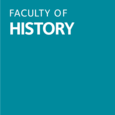Call for Papers: Christians and Jews in Ottoman Society
Call for Papers
This workshop has the explicit purpose of the publication of a volume of collected essays. As such, we invite submissions for papers from scholars who will be able to adhere to the provisional schedule detailed below. We are interested in papers that engage with the general subject in different ways. For example, some papers might consider aspects of everyday life among specific communities of dhimmis, while others might offer more, general accounts of the place of dhimmis in Ottoman society. The main criterion is that papers must engage with wider questions about the place of dhimmis within various contexts of Ottoman, Muslim, or imperial society. Given limits of space and time, it is unlikely that we will be able to select papers that focus only on practices within specific dhimmi communities, i.e., all papers must engage in a meaningful way with the status of these communities as Ottoman subjects.
Proposals should take the form of an Abstract (no more than 250 words, including title) and a short Cover Letter introducing yourself and including details of your current institutional affiliation and any previous publications (no more than 1 page). When preparing your proposal, we strongly encourage you to consider the section below (‘Some Propositions’).
Proposals should be sent to john-paul.ghobrial@history.ox.ac.uk no later than 20 February 2017.
Some Propositions
1. The book will adopt a comparative approach to Christians and Jews within the Ottoman Empire: we encourage proposals from scholars working across the wide stretch of Ottoman geography including Egypt, Syria, Palestine, Iraq, the Balkans and the Mediterranean world. In the final publication, some attention may also be given to comparisons with the position of dhimmis in other contemporary Muslim empires, most notably the Safavids and the Mughals.
2. In its focus on ‘Ottoman society’, the book will engage with wider questions about the place of religious identity—both individual and communal—in the Ottoman world. In doing so, we invite proposals that seek to problematize some of the traditional terminology of this field—for example, ‘millets’, ‘minorities’, ‘dhimmis’ (as a category applying in the same way to Christians and Jews) and so on—while also encouraging submissions from scholars with interests in the study of religious diversity (e.g., ‘ruled’ versus ‘ruling’ religions, ‘communitarian cosmopolitanism’, ‘toleration’, ‘pluralism’, etc.). The book will explore the meaning of religious identity in both a local and imperial context.
3. In place of CJOE’s focus on ‘early Islam’, we will consider Mamluk and Byzantine legacies as they informed Ottoman approaches to Christians and Jews. Moreover, we will seek to problematize the religious categories themselves, replacing simple notions of ‘Christians’ and ‘Jews’ as organic units with more considered reflections on how boundaries were formed between and within these communities. We encourage proposals, therefore, that pay special attention to everyday experience, identity formation (individual and communal), and the role played by particular practices (e.g., food, festivals, martyrologies, religious devotion, taxation, the jizya, clothing, migration, settlement, etc.).
4. Although we will adopt a wide chronology, the centre of gravity of the final publication will lie in the sixteenth, seventeenth and eighteenth centuries. We will also pay attention to the nineteenth century. However, participants working on the nineteenth century are encouraged to consider what the changes of the nineteenth century revealed about earlier periods, that is, what can we learn from how individuals and institutions reacted to the changes of the nineteenth century about what was ordinary, commonplace and ‘status quo’ in earlier centuries.
5. The book recognises that a productive approach to this subject involves the consideration of Ottoman sources (archival, literary, legal and financial) alongside sources produced within particular communal traditions (Arabic, Syriac, Greek, Coptic, Hebrew, Ladino, Armenian, etc.), and the range of participants involved in this endeavour seeks to reflect this diversity of sources.
Provisional Schedule and Deadlines
The purpose of the workshop is to write a new history of Christians and Jews in Ottoman society, and to do so in a comparative, purposeful, and timely manner. Anyone who agrees to participate is asked to do so only if they think they will be able keep to the provisional schedule below.
20 February 2017: CFP deadline
(by) 1 April 2017: Participants notified and asked to commit to attendance
31 May 2017: All participants to submit final titles, extended abstracts, and short bios
3-5 July 2017: Workshop in Oxford (arrival on 2 July, departure on 5 July)
31 August 2017: All participants to submit initial drafts of papers to organiser for first review
1 October 2017: Organiser returns comments and suggestions to all participants
January 2018: Final versions of all papers due to organiser
Potential publication in late 2018 / early 2019
Travel and accommodation
We will provide accommodation for all participants for three nights in Oxford, checking in on 2 July 2017. Depending on funding, we also hope to be able to cover the travel expenses of Early Career Researchers. In all other cases, travel expenses will be reimbursed as far as possible given budget constraints although we will ask participants to apply if possible for reimbursement from their home institutions. All participants will be informed of how much we can reimburse before they make a final commitment to attend.
Please direct any questions to:
John-Paul Ghobrial
Associate Professor and Tutorial Fellow in Early Modern History
Balliol College, University of Oxford
john-paul.ghobrial@history.ox.ac.uk



